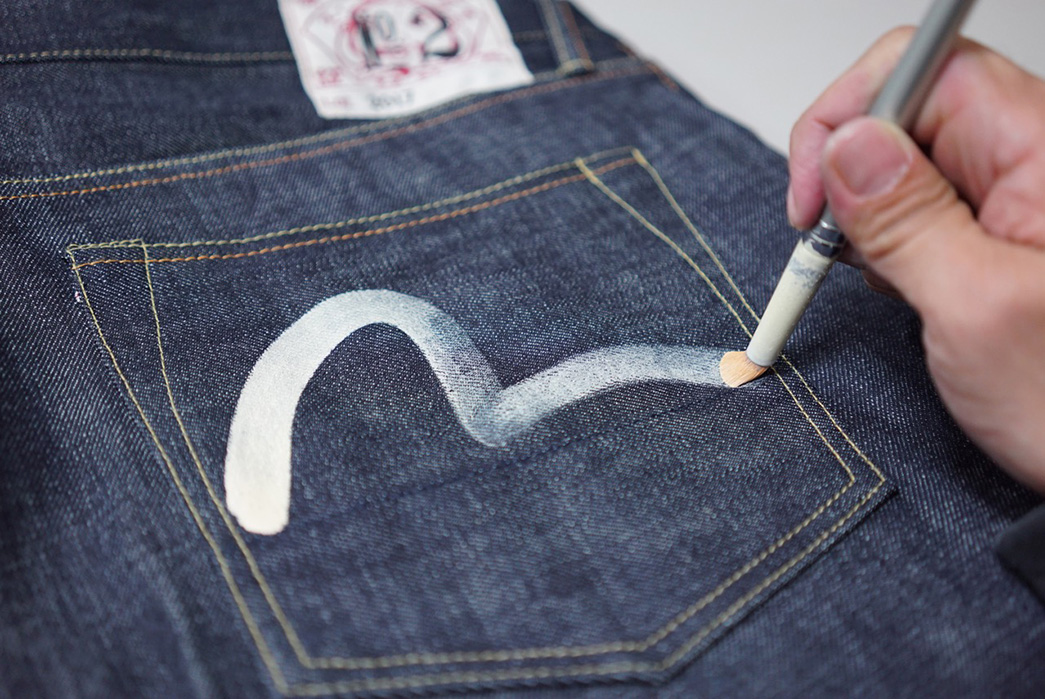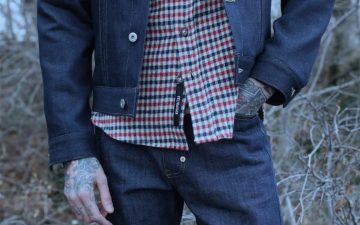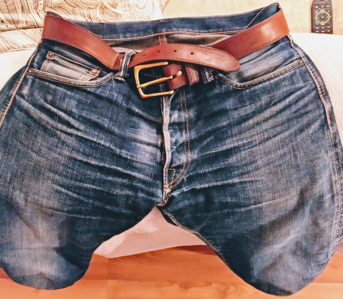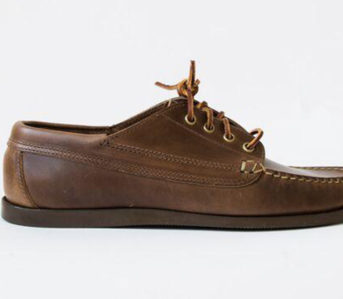Evisu, if not ubiquitous, is certainly recognizable. No catch-all history of Japanese denim is considered complete without a large glossy print of the brand’s signature “seagull” arcuates. These days, in an increasingly saturated market, Evisu might be lost in the shuffle, but the denim-lover cognoscenti ought to be aware of the brand with the painted seagull, the third of the famous Osaka 5.
From a few Americana-loving denim obsessives to hand-painted arcuates to bridging the gap between Japan and America via hip hop, the warp and weft of Evisu’s history is dripping with twists and turns. And now, we’re taking a good look at the outsider of the Osaka 5.
Good Denim Comes to Japan
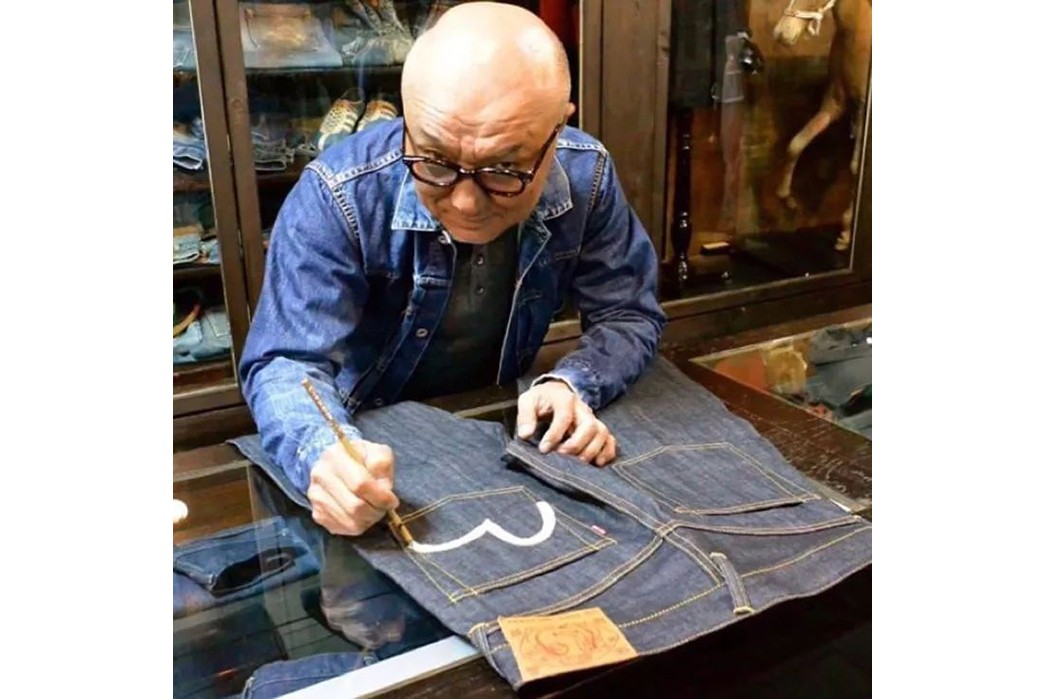
Hidehiko Yamane painting his signature arcuate via Long John
Hidehiko Yamane founded Evisu in 1991, making it the third of the Osaka Five; but his R & D went on for several years before. Our article a few weeks back, about the creation of Full Count should provide some important background for this piece. An irreconcilable difference of opinion would cause Yamane to split with his partner, Mikiharu Tsujita, who would go on to found the fourth of the Osaka 5, Full Count.
But head back a few years and Yamane is working as the manager of Lapine, a store that was popular with denimheads for its extensive collection of deadstock Levi’s, as well as for carrying the first of the Japanese denim greats, Studio D’Artisan. As we have discussed in the Full Count article, denim wasn’t just suddenly accepted in Japan after WWII. Instead, it wasn’t until the 1960s that men’s fashion really became a thing in Japan, and at that point, it was the distinctly Japanese interpretation of Ivy Style. Jeans, when they became cool in Japan, were not unlike the garments being churned out stateside. An economic boom gave rise to a consumer economy that meant people wanted cheap clothes and lots of them.
Japan’s first dalliance with high-quality denim came in the form of vintage Levi’s. As consumers became savvier, however; these deadstock one-of-kind pieces became worth thousands of dollars. Brands like Studio D’artisan and Denime sprang up, riding the wave of interest in vintage denim, but making their pieces from scratch. They used high-quality denims and made allusions to the classic Levi’s details that people treasured. Studio and Denime were making jeans through a chic Eurocentric lens, just take a look at the faux French name “Studio D’Artisan”. But Yamane wanted to do something different.
Evisu (Evis) is Born

Well-faded pair of Evisu Lot 2000, No. 2 jeans via Heddels
Tsujita, the future founder of Full Count was a frequent customer at Lapine when Yamane confided in him of his plans to make his own denim line. Tsujita believed in his vision to such an extent that he quit his advertising job to get on board. The brand would be called Evis, after Ebisu, the name of the Japanese god of fortune and fishermen. (At this point, most sources say that money and fishing are two of Yamane’s five favorite things, the others things being golf, beer, and women. This seems difficult to verify.) More importantly, Evis was just Levi’s with the ‘L’ removed. This sense of play and humor would pervade through Evis’ early years, especially with the iconic seagull design.
Evis’ first three hundred pairs were large, anti-fit, “American-style” jeans reminiscent of the ill-fitting garments Yamane would find at his local surplus store. Yamane painted the now-famous seagull arcuate on some of the jeans, but mostly as a joke. In Ametora he’s quoted as saying, “The paint was half joke. I never thought anyone would buy them.” While lots of histories claim that this is a loving reinterpretation of the painted-on arcs of the famous 1944 Levi’s 501, that may not be the case. Considering that Yamane would lose three of his closest partners: Tsujita to form Full Count and the Shiotani brothers to form Warehouse over his unwillingness to make more accurate reproductions, this may have just been a coincidental moment of brilliance. The first pairs to sell were those with the garish arcs. He would add them to the others soon after.
Evisu Is Cool
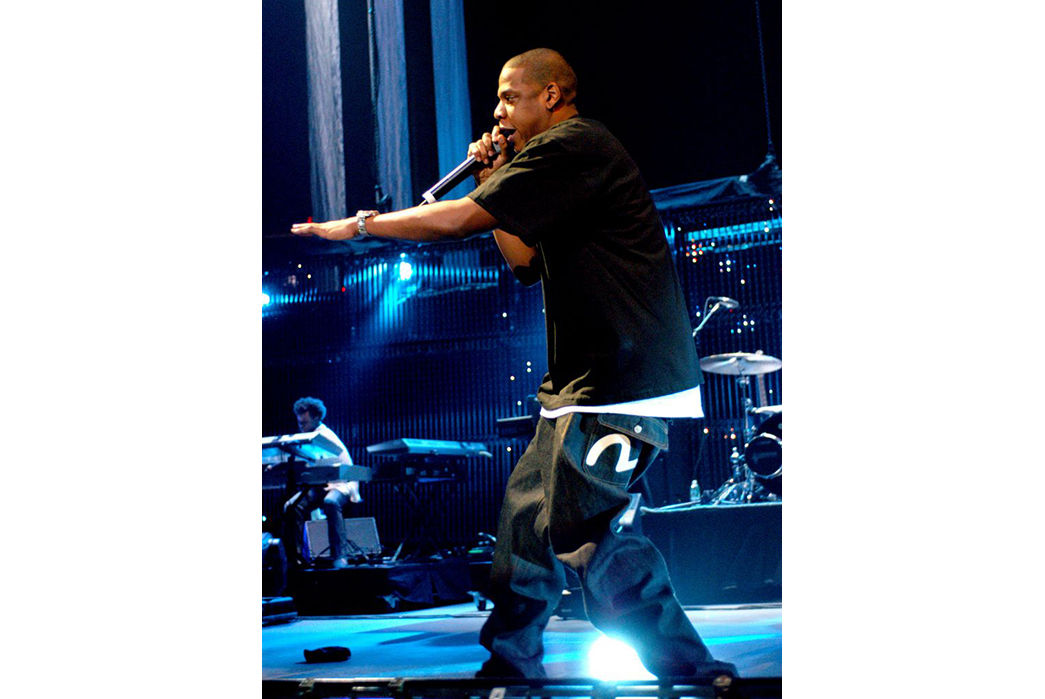
Jay-Z in Evisu via BET Networks.
As Evis gained momentum, they had to tack a U on their name to evade the notoriously litigious legal team at Levi’s. This didn’t slow things down. When the company was first founded, the brand was producing about 14 pairs of jeans a day and Yamane would hand-paint each seagull arcuate.
By the early 2000s, things were kicked up a notch. Yamane partnered with Peter Caplowe (founder of The Hub) to disseminate his uniquely garish jeans among the cool kids of London and New York. The so-called American style jeans, with their outsize, baggy fit and their marked-up price point made them an aspirational purchase for rappers, DJs, and the likes of David Beckham. W. David Marx, again in his book Ametora states Evisu’s significance simply. Evisu was the first of the Japanese denim brands to really sell Americans on Japanese denim as a concept and as a purchase worth saving for. More so than the others, Evisu was able to convince people outside the niche denim community in Japan that the future of high-end denim was in Japan and what a future it was.
Kiya Babzani of Self Edge was one such convert to Japanese denim in the face of Evisu’s technical mastery and fastidious design. The brand managed to successfully bridge the gap between the repro-lovers like Babzani and the world of streetwear back in the U.S.
Evisu Today
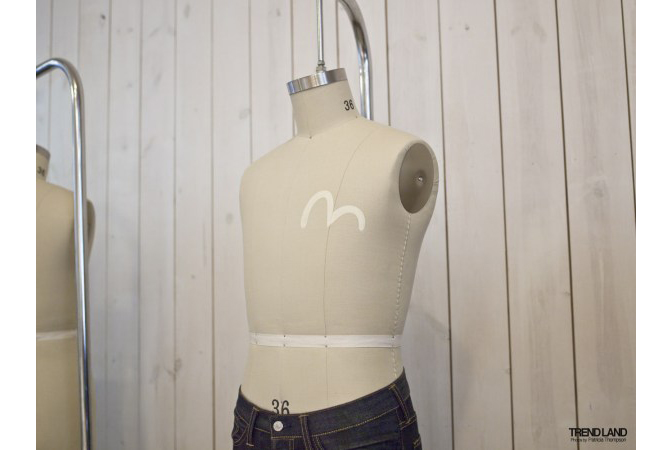
Image via Trendland
Though some sources have made allegations of financial misfeasance against Yamane that no other source seems to confirm or deny, regardless, Evisu is under new management. As of 2010, Scott Morrison, the founder of Earnest Sewn was helming the Japanese denim stalwart. In interviews, he implies his commitment to reproducing the iconic 1944 501xx, while also floating the idea of breaking Evisu into smaller sub-brands, some of whom will make a fast-fashion version of the product; but none of whom will manufacture in Japan.
Nowadays, David Pun, the racing enthusiast is the CEO of Evisu Group. The South China Morning Post seems to be the only source with this information. It feels like Evisu’s web presence is more obscure by the day, but none of this can diminish the brand’s huge impact on the world of denim and style.
Evisu has certainly left its mark on the world of denim. From Osaka 5 to flying south to collaborate with Durex, and the many, many iterations of their seagull arcuate, the brand will continue on its strange path. And though many don’t hold the brand in high esteem, especially among denim purists, their origins subsequent impact on denim opened the door to an incredible niche of fashion.

